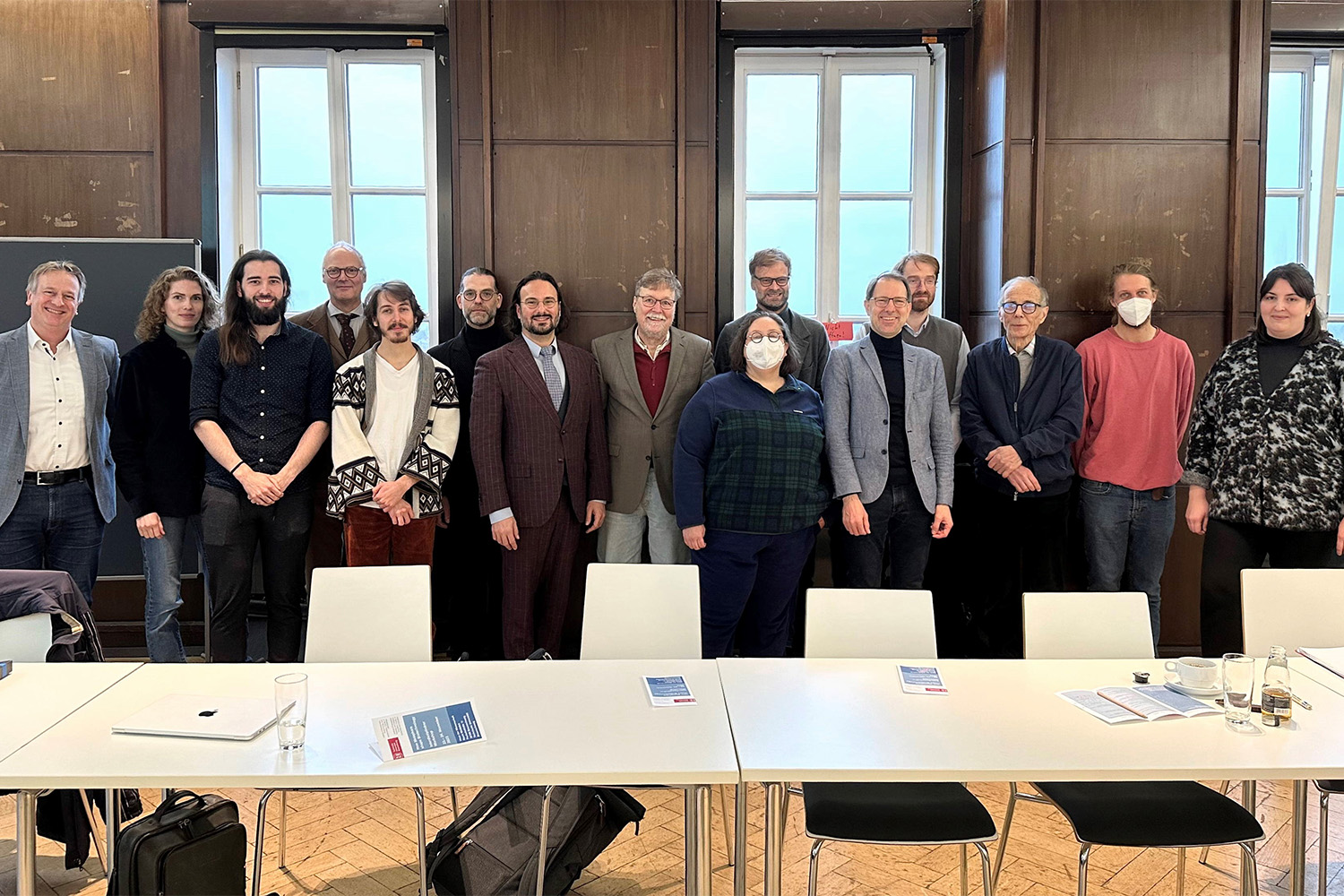Biotechnology Meets Ethics Interdisciplinary exchange on the importance of metaphors in science
Ethicists from the fields of philosophy and theology met with biologists at the Haus der Wissenschaft in Braunschweig for the interdisciplinary workshop “How Metaphors shape Biotechnology”. Experts from all over Germany came together to discuss the impact of metaphors on the life sciences.
Scientific research uses metaphors to guide the perception of the research itself (epistemological capacity of metaphors) and to shape public scientific communication (discursive capacity). Examples of such metaphors in biology are terms such as “antibody” for immunoglobulins, “genetic information” for DNA, or “gene scissors” for CRISPR/Cas9.
The use of metaphors is essential in science in order to describe abstract phenomena that cannot be physically grasped – after all, we cannot really see the molecules of the living world because they are too small even for microscopes. We therefore need metaphors that we draw from our real, tangible world in order to describe it and to be able to formulate hypotheses at all.

Participants of the workshop “How Metaphors shape Biotechnology”. Photo credit: Ron Hartmann/TU Braunschweig
Metaphors are essential to the formulation of scientific hypotheses
However, the choice of a particular metaphor is always a compromise – the range of meanings of the chosen metaphor is always something other than the biological processes or substances it describes. This creates a problem for researchers, but also an opportunity: the choice of words can influence the way researchers think. It can also change the direction of future research by distracting from aspects of the biological system that are no longer associated with it because of the imprecision of the metaphor – or it can put into perspective aspects that lead to forward-looking insights. Of course, metaphors can never accurately describe all aspects of the actual biological phenomenon.
Without metaphors, modern scientific findings cannot be explained in a generally understandable way
Metaphors are still very important in communicating scientific findings to the wider public, shaping public perception and influencing acceptance or rejection. This was clearly demonstrated during the coronavirus pandemic. This aspect particularly underlines the responsibility of science in using comparisons and metaphors to describe the complex processes of modern biology in a way that is generally understandable. Dealing with the central role of metaphors in the acquisition of knowledge and their significance in science communication is therefore of great importance for all sciences, but has so far been insufficiently systematically researched.
Interdisciplinary workshop of bioscientists and ethicists
In order to discuss these heuristic-epistemological, (science) communicative, creative and critical aspects of the use of metaphors in the life sciences and to form a research network, a group of established experts and young scientists from various German universities met on 23 and 24 November at the Haus der Wissenschaft in Braunschweig. The organisers, Stefan Dübel (Professor of Biotechnology and Director of the Institute of Biotechnology, TU Braunschweig) and Stefan Heuser (Professor of Systematic Theology and Ethics, TU Braunschweig) were delighted that so many scientists had accepted the invitation to give lectures.
In addition to analysing classical approaches to metaphor research and the current state of metaphor-theoretical research, the participants discussed the functions of metaphors in current bioscientific fields such as antibody research, biohybrid systems and epigenetics, raised questions of biology didactics and science communication, and also referred to the use of metaphors in the AI discourse. The successful collaboration is to be continued. In particular, interdisciplinary work on central metaphors in the life sciences and their contribution to the communication and acquisition of scientific knowledge will be promoted.
The workshop was organised by the Institute of Protestant Theology and Religious Education (Professor Stefan Heuser) and the Institute of Biochemistry, Biotechnology and Bioinformatics (Professor Stefan Dübel) as part of the “Interdisciplinary Collaboration” seed funding programme of Technische Universität Braunschweig.
